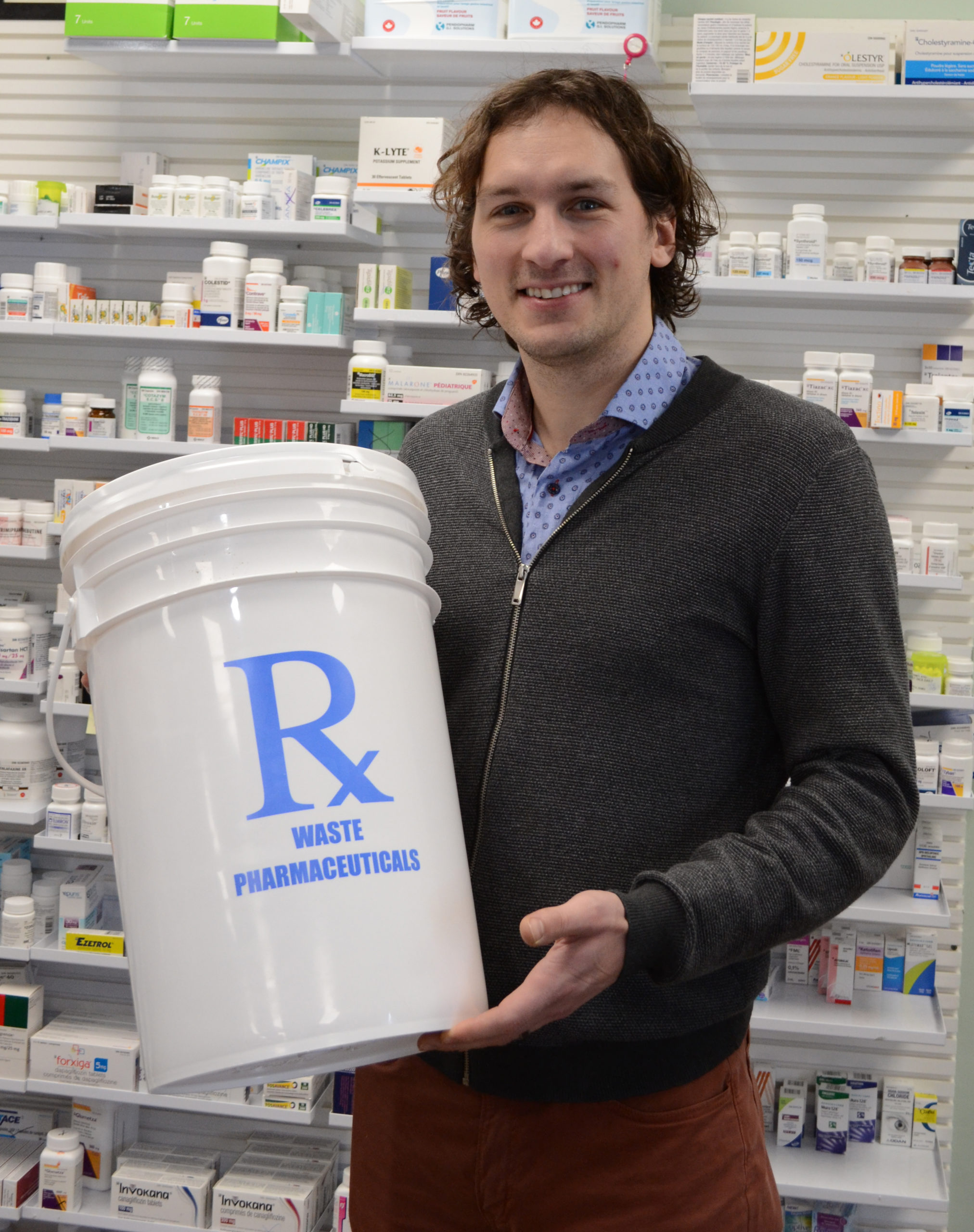Why you shouldn’t take cleaning out your medicine cabinet lightly.
Henrike Wilhelm
Kicker

Gregory Batt is a pharmacist who encourages the responsible disposal of expired or unwanted drugs. He is part owner of of the Breakwater Pharmacy in Portugal Cove-St. Philip’s. Henrike Wilhelm/Kicker
It’s been known for a while that dumping drugs down the drain negatively affects marine ecosystems. Indirectly, it hurts humans too.
In recent years, studies on various species like orcas, mussels or Atlantic bottlenose dolphins have helped researchers understand the effects of drugs on marine life.
Dr. Juan José Alava is a researcher at the University of British Columbia’s Institute for the Oceans and Fisheries in Vancouver. He says some pharmaceuticals that end up in the oceans can change the composition of hormones in animals.
This leads to changed behaviour and makes fish more vulnerable to stress factors, he says. Through the food chain, humans are also indirectly affected.
“The wastewater treatment plant doesn’t work to retain these pharmaceuticals because they are diluted in the water,” said Alava. “So, it’s important to think, in the future, of better ways to try to retain all these pharmaceuticals at the wastewater treatment plant before they go to the environment.”
Most pharmacies offer drop-off services for their patients to properly dispose of unused or expired pharmaceuticals.
“Are we really required every time to use antibiotics? Maybe going a more natural, environmentally friendly path might be a kind of alternative.”
Breakwater Pharmacy in Portugal Cove-St. Philip’s offers such a disposal service. Gregory Batt, pharmacist and one of the owners, explains the easiest way to educate people about recycling is to have a conversation when they pick up their medication or during such events as Pharmacist Awareness Month in March.
“You can come in, bring all your expired meds and … it kind of gets people talking, they go ‘Oh I need to clean my cupboards out for the spring’ or ‘the spring cleaning, let’s get rid of the old medications,’” he said.
If it’s in the drug cupboard, Batt says people can bring it in and drop it off for disposal.
“Essentially what I tell people is if you don’t know how to dispose of it, bring it back to us and we’ll have a look at it for you,” said Batt.
“I’d rather people bring back things that they don’t need to bring back to me and I can say, you know, ‘hey I can take that back and dispose of it for you now, but you don’t really need to.’ ”
At Breakwater Pharmacy, Batt and his staff fill two 22-litre buckets with old drugs every three months.
According to Alava, society needs to take more of a proactive approach.
“I think the approach needs to be that we are considerate from the personal point of view, changing our behaviour and how we use these substances,” he said. “Are we really required every time to use antibiotics? Maybe going a more natural, environmentally friendly path might be a kind of alternative.”




Be the first to comment